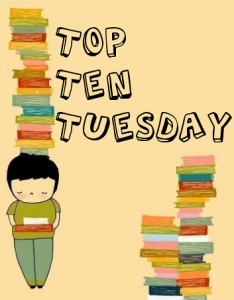Rocannon’s World
4 August 2019 1 Comment
Author: Ursula Le Guin
Summary: On the far planet of Fomalhaut II, where three races lived in uneasy peace, the Starlords has landed generations back in their great ships to levy tribute on behalf of the League of All Worlds. Now disaster had struck, and Rocannon, the expedition leader, was marooned on this distant world, eight years away from the nearest planet.
His friends murdered and his spaceship destroyed. Rocannon led the battle to save Fomalhaut II, in strange alliance with the three native races–the cavern-dwelling Gdemiar, the elvish Fiia and the warrior-clan Liuar. And in that desperate battle against an alien foe they myths were born and the legends grew. They were not his people, but the place became ROCANNON’S WORLD.
Rating: ★★★★☆ 3.5/5
Review: I’m still slowly working my way through the books in the Hainish Cycle series and have yet to be disappointed. This one consists of two short but linked stories: The Necklace and The Starlord. I enjoyed them both.
Although strictly speaking a science fiction story there were, on the whole, more elements of fantasy. It is set on a world cut off from space travel and advanced technology, and instead they have swords and giant flying cats and castles and various intelligent beings. With most of the characters not grasping the technology that was described and mentioned and the general setting very fantasy-like, it gave me a similar vibe to the world in The Broken Empire and The Red Queen’s War and i loved that.
The second, longer, story is told from the point of view of Rocannon–the starlord of the title. He’s a space traveller who has been to many different worlds, but finds himself stranded on this one when his ship and crewmates get destroyed. With the help of the native inhabitants of the planet, he sets off on a mission to contact his own people and get revenge on those who killed his friends. Along the way he learns a lot about this world, the other beings that live on it, as well as communication, friendship, and loyalty.
I pretty much loved all the main characters. There was no real tension in their personalities or relationships with each other. They were just together, helping each other till the end of their journey. I loved that. The adventures, dangers, and discoveries along the way were fun, thrilling, and wonderful in turn… almost like mini stories within this already quite short one, and I’m not sure I could pick a favourite!
The writing, as always with Le Guin, was wonderful. She’s so succinct here; never verbose or unnecessary. In an objective way, you could say the writing is quite straightforward, describing only what happens, often getting straight to the point. But for all the writing doesn’t mess around or meander, it holds the important things. Including the emotional parts of the story. I felt for these characters, their journey, and this world. I wanted things to work out well. I even cared about the giant flying cats they rode everywhere, wanting them to get enough food and rest! It’s just… wonderful writing!
The end of the book seemed to come on fast, with the book never wasting time or dawdling along, and I really appreciated that. As fast as it came, and as much as I already understood the ending from the title and summary of the book, the very last line still hit me with such an emotional punch… I’m not afraid to say i welled up.




















